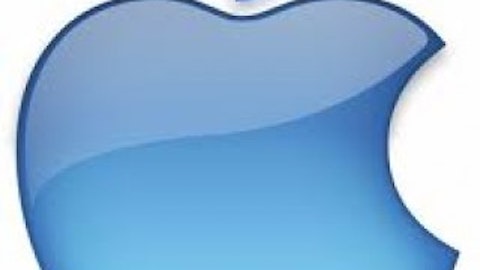
Unlike most other hedge funds, Joho Capital’s portfolio does not contain a vast number of stocks. In June 2012, the fund had interest in only 11 companies, with the top three holdings comprising 60% of the portfolio’s total value. These three holdings are Google Inc. (NASDAQ:GOOG), New Oriental Education & Tech Grp (NYSE:EDU) and Estee Lauder Companies Inc. (NYSE:EL).
Since the end of 2011, Karr has not sold a share of his investment in Google, and has actually added shares to this position in nearly every quarter. In the first quarter of 2011, Karr owned 58,741 shares of the tech giant, comprising 5.9% of his portfolio. By the first quarter of 2012, the position’s total value had nearly tripled, with Karr now owning 170,326 shares worth 23.1% of his portfolio. At this time, Google Inc. (NASDAQ:GOOG) was the second largest security in Karr’s portfolio, only behind his holdings of New Oriental Education & Tech Grp. In his most recent 13F filings with the SEC, Karr revealed that he had yet again increased his position in Google quite significantly, now holding 250,676 shares worth 28.3% of his portfolio’s total value, giving it the top spot.
To understand why Joho Capital exhibits such a bullish sentiment towards Google Inc. (NASDAQ:GOOG), we can simply compare the company with its two largest competitors: Microsoft Corporation (NASDAQ:MSFT) and Apple Inc. (NASDAQ:AAPL). By comparing quantitative data between these three companies, we can develop an understanding for how the Street is valuing the tech giant.
Google’s revenue has exhibited a five-year compound annual growth rate (CAGR) of 29%, and the stock is trading at 20.8 times its earnings. A major driver of this growth has been the company’s increasing smartphone market share, due to the ever-growing popularity of its Android operating system. Various growth opportunities lie ahead for Google, including but not limited to: app development, tablets, and the mobile arena.
Microsoft’s revenue has grown at a quarter of the rate of Google’s, and has an equally less-impressive five year CAGR of 7.6%. The Windows developer is trading at 15.4 times earnings (click here to see what the buzz about behind Microsoft patents on 3D video games), and is cheaper than Google because investors are uncertain over the future of upcoming products, most notably the Windows 8 OS and the Xbox 720.
Over the past five years, Apple Inc. (NASDAQ:AAPL) has grown to become the tech industry’s top dog, and has a five year CAGR of 41.2%. The company trades at 16 times earnings, making it slightly more expensive than Microsoft, but substantially cheaper than Google Inc. (NASDAQ:GOOG). Google is more expensive than Apple, most likely because investors believe that Apple is nearing the end of its high growth phase, while Google has a slightly larger high-growth window, so to speak. Although some investors believe that Apple’s size has muted any hope of future price appreciation, others believe Apple can still boost its stock price over $1,000.
By having a focused and long term investing approach, Robert Karr has positioned his hedge fund’s performance to be reliant on only a few stocks. While this may be a riskier approach than having a more diversified portfolio, Karr’s strategy allows him capitalize on his top investment ideas. With new developments occurring nearly every day about each tech giant’s footrace towards market dominance, it shouldn’t be too long before Karr determines if his huge stake in Google Inc. (NASDAQ:GOOG) was the right decision.
Disclosure: I am long Microsoft





